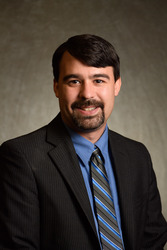
Dwight Pierce
Dwight L. Pierce, J.D. is the president of the Pierce-Slinkard Foundation.
The mission of the Pierce-Slinkard Foundation is to ensure that the meaning of the New Testament English Language text is as clear in the mind of the twenty first century English speaking reader/listener as the Greek text meaning was to the Greek reader/listener of the first century.
Preface to And God Came Down And They Called Him Jesus
By Dwight L. Pierce, J.D.
1. In our teaching, we have always “stitched” together the four gospel accounts to show their harmony. Therefore, it seems fitting to see the accounts merged together to reduce the duplication and create a single chronological narrative of the perspectives of Matthew, Mark, Luke, and John.
2. This merger of the texts is NOT intended to replace, minimize, or in any way detract from the unique perspectives of the individual writers, but rather to supplement the study of the life of Christ with a unified presentation.
3. Many people are unfamiliar with the reading of the Bible in that they do not come to this single narrative harmony with a context of four accounts of Christ’s life all neatly set forth by chapter and verse. This single narrative of the merged individual perspectives of the gospel writers’ Holy Spirit-inspired works would be helpful in communicating the complete story to those who are unfamiliar. Further, it would provide a refreshed and harmonious look at all four accounts for the experienced reader.
4. Given that there is only one author of the four gospel accounts – the one Holy Spirit speaking through four individual writers – it seems that a merger of the four accounts, with only the duplications omitted, would not in any way offend the completeness and purity of the gospel message.
It is vital that every person hears about the life and teaching of Jesus Christ. Few disagree that the story of Jesus Christ and His teachings are found within the four gospel accounts that open the New Testament of the Christian Bible, namely Matthew, Mark, Luke, and John.
The New Testament Greek word euangelion (evangel) means “good news,” which became “gospel” in Old English, meaning “god term” or “god-spell.” This word is most commonly translated today as “good news.”
Since at least the Latin Vulgate Bible of 405 CE, the canon of the Christian New Testament has opened with the four gospel accounts of Matthew, Mark, Luke and John, each of which records a version of the good news of the life and teaching of Jesus Christ. Each gospel account was written by a different man and intended for a different audience, from a different point of view. Further, each narrative has a slightly different emphasis focus, and reason for being written.
While the four gospel accounts are generally united in their overall theme and storyline, they each also contain unique sayings and stories which, when taken together, provide a more complete, composite picture of the teachings and personality of Jesus Christ.
The four gospels include many instances where the same saying, teaching, or store is recorded in two or three of the accounts, while some sayings and events from the life of Jesus are mentioned within all four. In the many places where more than one gospel account describes the same event, those verses are thought of as “parallel’ in that their content is the same or similar, occasionally even using identical wording.
Because so much material is shared among the four gospel accounts, particularly in Matthew, Mark, and Luke, they are also referred to as “synoptic,” which is a Greek compound word meaning “seeing together” or “seeing as one.”
In the many places where the gospel stories closely parallel each other, nearly all of them contain differences in the wording and specific details that each account records.
This harmony allows both the experienced and first-time reader of the four gospels to hear the story of Jesus in a fresh and illuminating manner. Its format prompts unique insights and relevant applications that might not otherwise have been realized. This phenomenon testifies to the fact that the gospel of Jesus Christ, Son of Man, Son of God, proclaims the “good news” to those in every generation who are willing to hear His words and follow Him.

Jordan Guy
Jordan Guy, Ph.D is Associate Professor of Bible and Ministry at Harding University in Searcy, Arkansas. Dr. Guy is a graduate of Freed-Hardeman University (B.A. Bible), Harding School of Theology (M.A. OT, M.Div.), and Asbury Theological Seminary (Ph.D. Old Testament).
His dissertation, United in Exile, Reunited in Restoration – The Chronicler’s Agenda was published in 2019 by Sheffield Phoenix Press and is the co-author of a forthcoming Brill commentary on 1-2 Chronicles.

Kevin Youngblood
Kevin Youngblood, Ph.D. currently serves as Professor of Biblical Studies in the College of Bible and Ministry at Harding University where he has taught for the past twelve years. He previously served on the faculties of Freed-Hardeman University and Ohio Valley University.
Kevin is a graduate of Lipscomb University (B.A. and M.A.R.), Westminster Theological Seminary (M. Div.), and the Southern Baptist Theological Seminary (Ph. D.). Kevin is the author of the Jonah volume in the Zondervan Exegetical Commentary and is a contributor to the T&T Clark Handbook of the Septuagint (Bloomsbury Press) as well as Timeless: A Liturgical Commentary on the Psalms (ACU Press.) He is currently working on the Lamentations volume in ZECOT as well as the Lamentations volume in the NETS Commentary on the Septuagint (Scholars Press).
